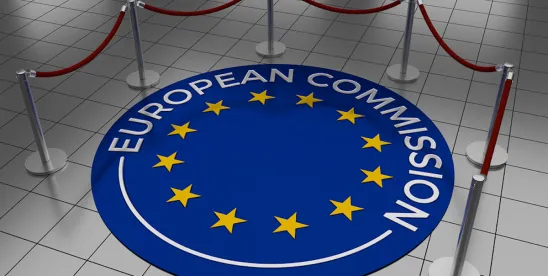On 24 September 2024, the European Commission (EC) issued its first conditional clearance following its in-depth investigation of an acquisition under the Foreign Subsidies Regulation (FSR), being a foreign non-EU buyer. The transaction in question involved the acquisition of an Eastern European telecoms group by a United Arab Emirates (UAE) telecommunications company that is ultimately controlled by a UAE sovereign wealth fund.
The Foreign Subsidies Regulation that entered into effect last year adds a third layer of regulatory scrutiny for large acquisitions. This case is highly relevant for clients engaged in the acquisition of companies with a significant amount of revenues in the European Union. It is the first major test case of a problematic transaction, and it provides guidance on the type of remedies that the European Commission would be willing to accept to get the deal through.
Background on the FSR
The FSR entered into full effect as of 12 October 2023, and its objective is to establish a level playing field for companies benefitting from non-EU subsidies versus those that do not. The FSR imposes a mandatory notification and suspensory regime both for major merger and acquisition deals and large procurement projects in the European Union, which means that such transactions cannot close without the prior FSR approval of the EC. The EC can also investigate on its own initiative (ex-officio procedure) if information indicates the existence of a foreign subsidy that might be distorting the internal market.
The FSR only applies to acquisitions where the target business generates an EU turnover of €500 million and the aggregate amount of foreign (non-EU) financial contributions received by the parties exceeded €50 million in the last three years before the deal. In practice, the key threshold test is the rather large €500 million target turnover threshold, which means that only larger transactions, like the present one would be subject to FSR review. The case in point related to an acquisition, which means that the target business here must necessarily have generated an EU-wide turnover of at least €500 million.
The FSR sets out a three step process for the substantive assessment of foreign subsidies: (i) first it will assess whether the foreign financial contribution confers a benefit that is limited in law or in fact to one or more companies or industries; (ii) second, the EC will assess whether the subsidy will distort the internal market; and (iii) third, the EC will balance the negative effects of the foreign financial contribution against any positive effects of the subsidized activity. “Foreign financial contribution” is very broadly defined to include any economic advantage granted by a non-EU country or a non-EU entity whose actions could be attributed to a non-EU country.
The FSR is primarily concerned by financial contributions by non-EU countries that have a distortive effect on competition in the European Union. Article 5 of the FSR identified five categories of foreign subsidies most likely to distort the common market, one of which is unlimited guarantees, which were the concern of the case here.
The FSR process and the EC’s concerns
The case was initially notified on 26 April 2024, and the EC opened an in-depth investigation on 10 June 2024, where it found that the EC has “sufficient indications” that the acquirer had received certain distortive foreign subsidies and invited third-party comments as part of this in-depth investigation.
On 24 September 2024, the EC announced its final findings, which were the following:
- The acquirer (the UAE telco company) and its sole controlling shareholder (the UAE sovereign wealth fund) had received foreign subsidies from the UAE notably in the form of an unlimited state guarantee to the acquirer (the UAE telco company), as well as grants, loans, and other debt instruments to the acquirer’s sole controlling shareholder (the UAE sovereign wealth fund).
- The foreign subsidies received by the acquirer did not lead to actual or potential negative effects on competition in the actual acquisition process, as the acquirer was the sole bidder for the target and had sufficient resources on its own to perform the acquisition. In addition, the purchase price reflected the target’s market value.
- These foreign subsidies did not distort the actual acquisition process, as the acquirer was the only bidder for the target and had sufficient resources to carry out the acquisition on its own. However, the EC found that the foreign subsidies received by the acquirer and its sole controlling shareholder could have led to a distortion of competition in the European Union post-transaction. The EC found that the unlimited guarantee raised particular concerns in this case as it could give the combined firm an unfair advantage for future spectrum auctions and deployment of infrastructure of acquisitions.
The conditional clearance
On 24 September, the EC cleared the transaction subject to the following commitments for a period of 10 years, which are extendable by another five years:
- A removal of the unlimited state guarantee for the acquirer;
- A prohibition on any financing from the acquirer and its sole controlling shareholder to the target’s activities in the European Union, except for emergency funding and other transactions that take place on market terms;
- A requirement that the acquirer informs the EC of all future acquisitions, even if they are not notifiable under the FSR; and
- The appointment of an independent monitoring trustee who will oversee the above commitments.
Encouraging signs from this first test case under the FSR
This first conditional clearance of an acquisition under the FSR shows some encouraging signs in at least two respects.
First, the clearance process took five months, despite the opening of a Phase II investigation. This is considerably shorter than most Phase II investigations under the European Union Merger Regulation (EUMR) merger regulation which typically have taken much longer in recent years, well over a year.
Second, the EC showed signs of flexibility in terms of accepting nonstructural remedies designed to surgically address the distortive foreign subsidy in question. Even though the imposition of a monitoring trustee is always a very burdensome process, particularly over a 10-year period, this is still a preferable solution to divestiture remedies for most acquirers.
This first test case is encouraging news for dealmakers involved in the acquisition of companies with a large EU presence. Even though the FSR does add an additional layer of regulatory scrutiny, the first test case shows that the FSR is not as burdensome as the EUMR process or as unpredictable as the foreign investment review process.







 />i
/>i
